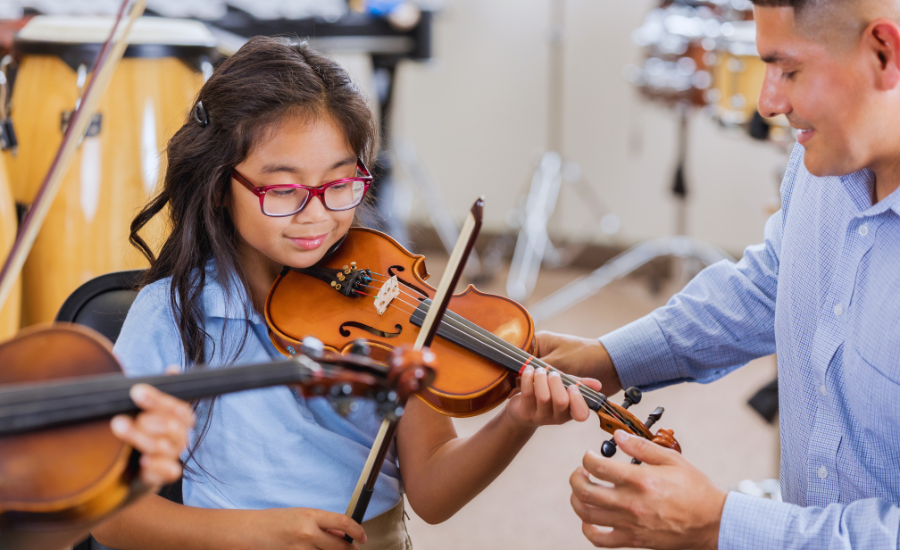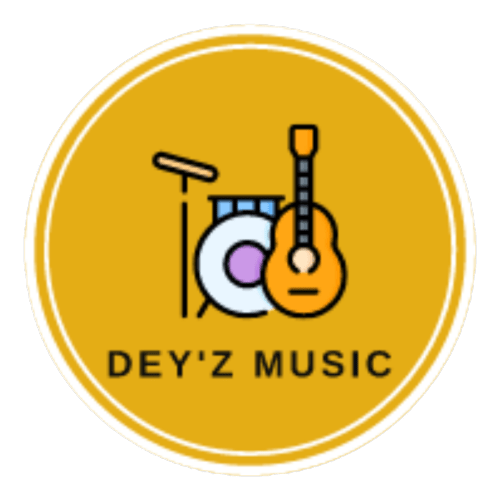In recent years, mental health awareness has gained significant traction, with more people realizing the importance of taking care of their mental and emotional well-being. Among the various activities known to improve mental health, learning an instrument stands out as a powerful and transformative tool. Music has long been associated with emotional expression, relaxation, and cognitive benefits, but the act of learning and playing an instrument goes even deeper. Let’s explore how learning an instrument can positively impact mental health and boost overall well-being.
1. Stress Reduction and Relaxation
Life can often feel overwhelming, with work pressures, personal challenges, and the constant buzz of daily responsibilities. Learning an instrument offers a break from these stresses. When you play music, your focus shifts entirely to the task at hand—reading sheet music, mastering finger placements, or getting the rhythm right. This intense focus acts as a form of mindfulness, pulling your attention away from stressful thoughts.
Moreover, playing soothing or familiar melodies can have a calming effect, similar to meditation. Research has shown that engaging with music can lower cortisol levels (a hormone associated with stress), helping to reduce anxiety and promote relaxation.
2. Emotional Expression and Release
Music is often described as the language of emotions, and learning to play an instrument allows individuals to express feelings they may otherwise struggle to communicate. Whether it’s the frustration of a challenging day or the joy of a personal achievement, music provides an outlet to channel and process emotions.
For individuals dealing with anxiety, depression, or mood swings, playing an instrument can offer a therapeutic release. The act of creating music helps externalize internal struggles, allowing for emotional processing in a healthy and constructive way.
3. Improved Cognitive Function
Learning an instrument is not only good for emotional well-being but also enhances cognitive functions, which can positively affect mental health. The process of reading music, coordinating hand movements, and keeping rhythm engages multiple areas of the brain. Over time, this can improve memory, attention, and problem-solving skills.
For those experiencing cognitive decline or memory-related challenges, playing music has been shown to be particularly beneficial. Studies have found that individuals who engage with music regularly are less likely to suffer from dementia and other cognitive impairments as they age. This mental stimulation can significantly boost confidence and improve overall well-being.
4. Boosting Self-esteem and Confidence
Mastering an instrument is no easy feat. It requires dedication, practice, and perseverance. However, the sense of accomplishment that comes with learning to play a new piece or mastering a difficult technique can provide a huge confidence boost.
This boost in self-esteem extends beyond music. The discipline and resilience learned through practicing an instrument can translate into other areas of life, empowering individuals to take on new challenges and believe in their capabilities.
5. Social Connections and Community
While learning an instrument can be a solo activity, it also has the potential to create social bonds. Joining a band, participating in group lessons, or even playing with friends fosters a sense of community. These social interactions are essential for mental health, providing support networks and reducing feelings of isolation.
In today’s digital age, online music communities offer a way to connect with fellow musicians worldwide. Whether you’re learning through online music classes or performing virtually, the shared experience of music helps foster connections and alleviate loneliness.
6. Mindfulness and Focus
Playing an instrument requires full concentration, which helps redirect your mind away from worries or intrusive thoughts. This focus on the present moment is similar to the concept of mindfulness, where you bring your attention to the now without judgment. By immersing yourself in playing music, you practice being in the present, reducing rumination and anxiety.
Many people find that music helps them enter a flow state—a psychological condition where you’re fully absorbed in what you’re doing, losing track of time and space. This flow experience has been linked to greater happiness and fulfillment.
7. Music as a Tool for Healing
Music therapy has long been used as a formal treatment for a range of mental health conditions. For individuals dealing with PTSD, trauma, or grief, learning an instrument can be an integral part of their recovery. Through guided sessions, therapists use music to help individuals process difficult emotions and foster resilience.
Even outside of formal therapy, many people turn to their instruments as a form of self-care and healing. Playing music can serve as a gentle reminder of their inner strength, helping them cope with life’s difficulties.
Conclusion
Learning an instrument offers numerous mental health benefits that extend beyond just enjoying music. From reducing stress to enhancing cognitive function and building social connections, the act of creating music can profoundly improve well-being. In today’s fast-paced world, taking the time to sit with an instrument and immerse yourself in the sounds you create can be a powerful form of self-care.
Whether you’re learning through online music classes or attending music classes in Mumbai, the emotional and cognitive benefits of playing an instrument are undeniable. Music has the power to heal, connect, and transform, making it one of the most accessible and effective tools for boosting mental health.





